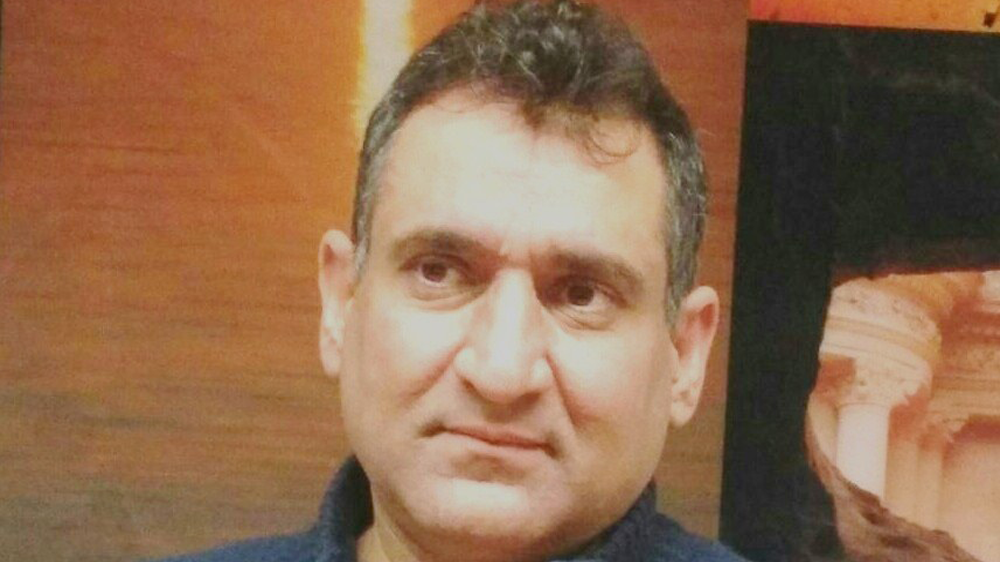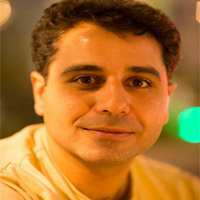كمال الحاج من الأسماء الأكاديمية المعروفة في العالم العربي.. فعدا عن كونه أحد مؤسسي كلية الإعلام في جامعة دمشق بعد أن كانت مجرد "قسم للصحافة" تابع لكلية الآداب، وعميد له ما بين عامي 2011-2013، فله العديد من المؤلفات في مجال الإعلام ونظريات الإعلام والعملية التحريرية والعملية الإنتاجية الإعلامية، عدا عن دوره في إعداد المناهج التدريبية والتدريسية في عدة جامعات. يقيم اليوم في ألمانيا وقد انتقل للعمل في تجربة أكاديمية تزداد شعبيتها عبر العالم وهي تجربة "الأكاديمية الافتراضية" التي تتيح للطلاب إكمال دراستهم متجاوزين حاجزي اللغة والجغرافيا. مجلة الصحافة كان لها هذا اللقاء مع الحاج للاطلاع على تجربته في التدريس الأكاديمي وواقع خريجي كليات الإعلام في العالم العربي.
- أنت ممن تنقل بين أكثر من جامعة في الشرق والغرب للتدريس، كيف تقيم الأداء الإعلامي الأكاديمي في العالم العربي؟
في الوطن العربي هناك مدارس رائدة في المجال الأكاديمي الإعلامي: منها المدرسة المصرية العريقة وعمرها يقارب السبعين عاما في مجال التدريس الإعلامي وهي المتمثلة في جامعة القاهرة بشكل رئيسي.. هذه الجامعة منحت الآلاف من رسائل الماجستير والدكتوراه وخرّجت كوادر أكاديمية ومهنية لخدمة وسائل الإعلام المصرية والعربية، وهناك أيضا المدرسة التونسية وجامعاتها، وفي لبنان هناك جامعة حكومية وخاصة في هذه البلدان، كما أني لا أغفل أيضا الجامعات الموجودة في الإمارات وهي متميزة أيضا.
عُمر قسم الصحافة في جامعة دمشق العريقة بسوريا أكثر من ربع قرن، أما كلية الإعلام فعمرها لا يتجاوز خمس سنوات، وهي تجربة جيدة حاولنا فيها تأمين مستلزمات العملية التدريسية من خلال إعداد استديو إذاعي تلفزيوني ومخابر غرافيك وإنترنت لتدريب الطلاب، ولكن نتيجة الظروف التي تمر بها سوريا لم يعد بإمكانية الطلاب الاستفادة من هذه المخابر التي كانت من أفضل مستوى على الإطلاق حيث تم تحويل ملكيتها والاستفادة منها من قبل وزارة الإعلام ولم يستفد الطلاب منها، ونتيجة لذلك فقدت الكلية الشطر التدريبي المهني فيها، وهو ما دفع الطلاب إلى اللجوء لطرق خاصة للحصول على التدريب وأحيانا اللجوء إلى دول الجوار.
- هل أفهم من حديثك أن كليات الإعلام الخاصة والحكومية مؤهلة اليوم فعلا لتخريج كوادر تواكب التطورات الهائلة في عالم الإعلام والاتصالات؟
عموما عدا التجربة المصرية في التدريس وتخريج الكوادر، فإن جامعات وكليات الإعلام في الوطن العربي تحتاج لجهود أكبر حتى تتبلور لأنماط خاصة في التدريس لتتميز عن غيرها، فهي للأسف لا تفتح طريقا ميسرة للتدريب في المؤسسات الإعلامية أو العمل فيما بعد.. وهو ما يؤدي لفتح طرق غير معبدة للكوادر الجديدة، فكثير من الكوادر تتخرج وتنتظر سنوات أحيانا لتجد فرصتها في العمل، وأستثني بالطبع خريجي دول الخليج بحكم أن عدد خريجي جامعاتها أقل من دول أخرى مثل مصر وسوريا والأردن والعراق.. أما الجامعات العربية الخاصة فلا يتوافر في بعضها دائما الإمكانات التقنية الكافية في مختلف المجالات وهناك إمكانات تقنية موجودة ولكن ليست متطورة ما عدا دول الخليج عموما.
- كيف ترى أداء الكوادر في الواقع الإعلامي بالاستناد إلى ظروف تكونهم الأكاديمي في كل بلد؟
في الحقيقة لم أجر دراسة علمية حول هذا الموضوع ولكن من خلال ما أراه من نتاج عام، يمكنني القول إن هناك أقلاما ومواهب جيدة بارزة على الساحة العربية، ولكن غالبا ما يتم استقطابها لوسائل إعلامية كبيرة، لذلك نجد أن الوسائل الإعلامية الحكومية تعاني من نقص الكوادر المتخصصة.. هناك خطوات واعدة قياسا بحداثة عهد كليات الإعلام في عالمنا العربي، ولا ننسى أن الوصول إلى حالة إعلامية متميزة يحتاج لتراكم خبرات..فعمر قسم الصحافة في جامعة دمشق مثلا لا يتجاوز 25 عاما، وكذلك باقي الكليات في العالم العربي عدا جامعة القاهرة، وهذه المدة ليست بالمدة الطويلة لنقول إن هناك ترسخا لقواعد وأسس ومنهجيات معينة في وسائل الإعلام.
- كنت أنتظر منك أن تتحدث عن المزج السياسي السائد في العالم العربي في صياغة وقولبة الكوادر الإعلامية وتفصيلها على مقاس الأنظمة العربية؟
بالطبع هذا الأمر لا يخفى عن الكثيرين.. فالمؤسسات الأكاديمية الحكومية لها نمطية متشابهة في الوطن العربي بأدلجة وقولبة الإعلامي بحيث يكون موظفا لا مبدعا غالبا، لذلك نجد اليوم المحاولات الهامة التي تقوم بها المؤسسات الإعلامية الخاصة في استقطاب المميزين وإعطائهم حوافز مادية ومرونة أكبر من المؤسسات الحكومية التي تتشابه في قولبة العاملين بشكل تلتزم فيه بالنواظم والسياسات التحريرية الصارمة لها.
- أنت ابن الجامعات الحكومية، فقد كنت من أوائل خريج قسم الصحافة سابقا في دمشق، ثم ذهبت إلى مصر حيث أكملت دراساتك العليا قبل أن تكون أحد الكوادر الأكاديمية التي تخرِّج الإعلاميين.. هل حاولت أن تصنع شيئا مختلفا عن النمطيات السائدة في التدريس الأكاديمي؟
خلال الفترة التي كنت فيها عميد ورئيس قسم الصحافة ما بين عامي 2011 و2013، حاولت أن أنقل خبرات معينة اكتسبتها من جامعة القاهرة العريقة في التدريس الأكاديمي والعمل المهني من خلال اطلاعي على مؤسساتها العريقة وحاولت توجيه طلابي للعمل المهني أثناء الدراسة، ونجحنا إلى حد ما في إقامة دورات مجانية أو شبه مجانية تحملت الجامعة تكاليفها داخل الاستديوهات التابعة للجامعة في مجال التصوير التلفزيوني والفوتوغرافي والمونتاج وفي مجال التحرير الإعلامي بمجالاته المختلفة، حتى انتقلنا إلى دورات متخصصة في مجال الغرافيكس وكل ما من شأنه أن يجعل الإعلامي ناجحا في مجال التواصل الاجتماعي مع المحيط.. كانت تلك الدورات المتزامنة مع الدراسة الأكاديمية ممتدة على مدار العام.. لكن للأسف انتقلت ملكية هذه الاستديوهات إلى وزارة الإعلام، وبذلك كانت هذه التجربة –للأسف- قصيرة جدا (حوالي سنة وشهر).
- أنت اليوم مقيم في ألمانيا وعضو في هيئة تدريس لإحدى الجامعات الافتراضية، ضمن الرؤية التي استعرضتها سابقا كيف رأيت التجربة الأوروبية أكاديميا؟
نعم هذه تجربة جديدة لي، فبعد انتقالي لأوروبا بأشهر قليلة بدأت التدريس في إحدى الجامعات الافتراضية عبر الإنترنت، وهناك جامعة أخرى سأنتقل للعمل معها قريبا.. لهذه الجامعات تجربة جيدة ومفيدة، فهي تتيح لطلابها الموجودين في أوروبا أو حتى في العالم العربي إكمال دراساتهم الأكاديمية باللغة العربية وهناك طلاب سوريون وعرب من كل بلدان العالم يدرسون في هذه الجامعة وهي تشرف على رسائل ماجستير ودكتوراه، ما أقوم به حاليا هو تدريب طلاب الليسانس على الانخراط في سوق العمل الإعلامي إضافة لإشرافي على رسائل الماجستير والدكتوراه، طبعا فكرة هذه الجامعات التي قدمت حلولا هامة للطلاب الذين يحتاجون لوقت طويل كي يتعلموا لغة البلد الذي يقيمون فيه أنها تعتمد التدريس عن بعد.. وهذه تجربة جديدة وتحتاج لجهد مكثف من قبل المدرس والمشرف ومن قبل الطالب وهي جيدة في المجال الأكاديمي وأجد أنها يمكن أن تعمم على كل دول أوروبا وحتى من الممكن أن يكون في كل دولة أوروبية جامعة تستقطب كل الأشخاص الذين لم تتح لهم الدراسة في بلدهم لزيادة مهاراتهم وخبراتهم.
وبشكل عام فإن تجربة الجامعات الافتراضية عبر الإنترنت في سوريا والبلدان الخليجية وحتى في الكثير من دول العالم هي من التجارب الأكاديمية الحديثة نسبيا لذلك تحتاج إلى مزيد من الوقت كي تتبلور وتنضج .
- ولكن التعليم الافتراضي يعاني من عدم الاعتراف به في كثير من دول العالم؟
إذا كان المنتسبُ يعتقد أنه سيحصل من خلال دراسته على وظيفة في جامعة أو مؤسسة حكومية في أي بلد، فهو مخطئ لأن شهادته ينقصها الاعتراف الرسمي من قبل الدولة.. ولكن التطورات في مجال الإعلام اليوم تجاوزت هذه العقلية، فالأهم برأيي أن يكتسب الدارس الخبرات الأكاديمية والمهنية التي تجعله قادرا على الإنتاج الإبداعي كي يكون مبتكرا في أي مكان يعمل به.. أعتقد أن المؤسسات الخاصة في الوطن العربي تفتح المجال للمتميزين سواء أكانت شهاداتهم معترفا بها أم لا.. المهم بالنسبة لتلك المؤسسات هي المهارات التي اكتسبها الطالب للإبداع والإنتاج.
- اللافت أن بعض الدول الأوروبية كالدانمارك وسويسرا منحت تراخيص لجامعات افتراضية عربية للتدريس باللغة العربية، هل يعني هذا أن الدول مانحة الترخيص على الأقل تعترف بشهادات الخريجين ؟
هناك عدة مستويات للترخيصات.. منها اعتراف الجامعة المرخّصة بالشهادة التي يمنحها أستاذ لطالب، وهناك ترخيصات تمهرها المؤسسات الحكومية توقيعا.. أما الاعتراف الكامل فحتى اليوم لم يحدث في الكثير من البلدان التي يوجد فيها التعليم الافتراضي بسبب ما يُعتقد من أن الطالب لم يأخذ التعليم الكافي بالأسلوب المناسب للاعتراف بشهادته.. ولكني أعتقد أن المحك الأساسي لهذا الموضوع هو كيف يكون إنتاج هذه الخريج.. هل يعبر إنتاجه عن مستوى جيد أم مستوى أضعف؟ وانطلاقا من ذلك، فالأهم من أن تعترف أو لا تعترف بشهادة الخريجين هو أن معايير العمل في المؤسسات الخاصة اليوم تتركز حول نتاج هذه الإعلامي وكيفية إثبات نفسه في سوق العمل.
بالطبع هناك تخوف حتى الآن من التعليم الافتراضي ومن جدواه، لأنه تعليم عن بعد وبالتالي قد يكون هناك شكوك حول إنجاز بعض الطلبة لرسائلهم، لكن لن يخفى الأمر على المدرسين الأكفاء لتقدير مستويات الطلبة واختبارهم بأكثر من طريقة، كالاختبارات المباشرة للطلبة عبر الحوارات التي تتيحها وسائل التواصل الاجتماعي كبرنامج سكايب أو برنامج "بالتوك" الذي يتيح تشكيل غرف دردشة مع الطلاب، ما يمكّن المدرّس من طرح أسئلة استنتاجية تدل على فهمه للمادة. قد يحصل أحيانا بعض الخلل لكنه بسيط قياسا بالفائدة، ولا ننسى أن طلاب الجامعات المفتوحة والافتراضية هم من فئة كبار السن، وكثير منهم لديهم أسر وأعمال ومشاغل.. وهذه اعتبارات تراعيها مرونة التعليم الافتراضي التي تعمل على تنسيق الأوقات بين الطلاب والمدرسين بما تتناسب مع ظروفهم..
- هل تشجٍّع على الخوض قدما في تجربة التدريس الأكاديمي الإعلامي عبر الجامعات الافتراضية؟
أدعو لأن تفتح الجامعات العربية نافذة التعليم الافتراضي.. لأن هناك في داخل العالم العربي أو خارجه من يرغب بمتابعة الدراسة دون التفرغ الكامل بها بسبب ظروف خاصة.. يتيح التعليم الافتراضي مجالا أكبر لمتابعة التحصيل الأكاديمي مراعيا ظروف الطلاب، كما أنه يتجاوز المسافات والجغرافيا.









































